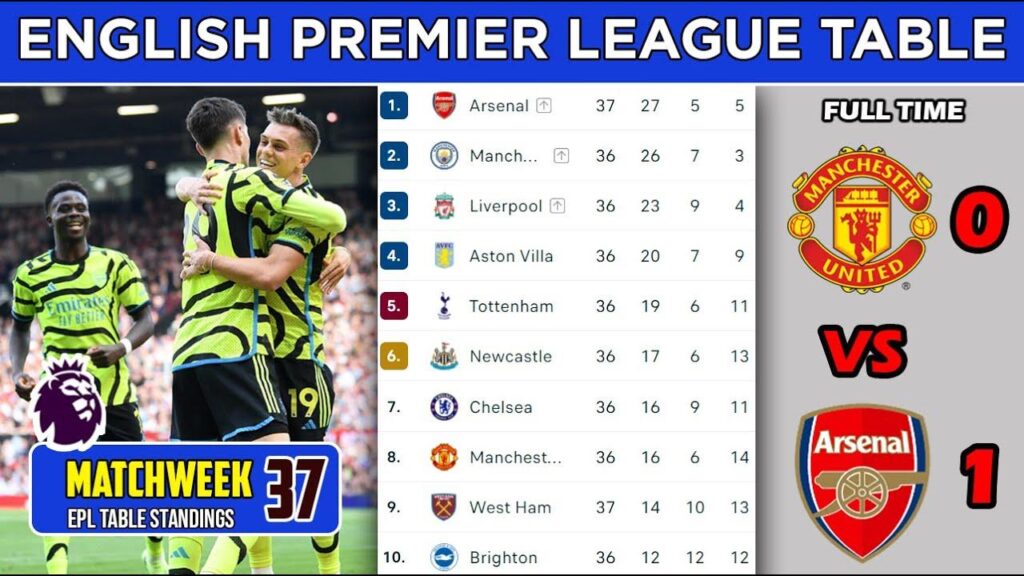As the global spotlight continues to shine on the English Premier League, discussions surrounding its structure and financial practices have gained increasing momentum. central to this dialog is the contentious issue of implementing a salary cap, a measure proposed to balance competition and promote financial sustainability within one of the world’s richest football leagues. advocates argue that a salary cap could level the playing field, preventing wealthier clubs from monopolizing talent and enhancing the overall quality of the league. Conversely, critics warn that such a cap could stifle creativity, undermine individual player worth, and diminish the league’s appeal to international audiences. In this article, we delve into the multifaceted debate over a potential salary cap in the Premier League, examining both the advantages and drawbacks of such a significant policy shift in the landscape of professional football.
Table of Contents
- Examining the Financial Landscape of the Premier League
- Impact on Competitive Balance and Team Performance
- Exploring the Influence on player Development and Wages
- Recommendations for a sustainable Future in Football Finance
- Concluding Remarks
Examining the Financial Landscape of the Premier League
In the current climate of the Premier League, financial disparity among clubs raises questions about equitable competition and sustainability.With the influx of TV revenue, sponsorship deals, and international merchandising, clubs are able to invest significantly in player salaries, leading to a widening gap between the financial might of elite clubs and smaller teams. This phenomenon often results in a lopsided competitive field where success is frequently dictated by financial resources rather than sporting merit. advocates for a salary cap argue that it could level the playing field, allowing smaller clubs to compete more effectively by limiting the financial advantages of wealthier teams.
On the other hand, implementing a salary cap could stifle the financial growth and ambition of the Premier League as a brand. Key arguments against such a measure include the potential reduction in talent attraction, as high-caliber players may turn to leagues with fewer financial restrictions. Furthermore, there is concern that a salary cap could limit clubs’ abilities to invest in infrastructure and youth development, which are vital for long-term success. The debate rests on finding a balance between ensuring competitive fairness and maintaining the Premier league’s status as one of the richest and most lucrative football leagues in the world.
Impact on Competitive Balance and Team Performance
the debate surrounding the implementation of a salary cap in the Premier League raises significant questions about its potential . Proponents argue that a salary cap could lead to a more level playing field, enabling smaller clubs to compete with financial powerhouses. This could foster an surroundings where underdogs can challenge established teams, potentially enhancing overall excitement and unpredictability in league outcomes.Furthermore, with equitable distribution of financial resources, it is likely that clubs will invest more in youth development and grassroots initiatives, contributing to a more robust talent pool across the league.
On the contrary,critics warn that a salary cap might stifle individual team performance and limit the ability of top clubs to retain their star players. The allure of elite talent is a significant draw for fans and sponsors alike, and capping salaries could lead to a decline in the quality of play, diminishing the league’s global appeal. additionally, a rigid salary structure could hamper clubs’ adaptability in strategic planning and roster management, potentially leading to less dynamic team compositions.To illustrate the potential disparities in revenue generation, consider the following table comparing average club revenues and estimated player wages:
| Club | Average Revenue (£m) | Estimated Player Wages (£m) |
|---|---|---|
| manchester City | 500 | 200 |
| Liverpool | 450 | 180 |
| Burnley | 150 | 50 |
| Brighton | 200 | 70 |
Exploring the Influence on Player Development and Wages
The introduction of a salary cap in the Premier League could have far-reaching effects on both player development and wage structures across the league.A cap could potentially democratize resources, pushing clubs to invest more in youth academies and training facilities rather than succumbing to a bidding war for established stars. By focusing on developing homegrown talent, clubs may find themselves nurturing players from a young age, fostering a deeper loyalty to their teams. This approach not only strengthens clubs through a robust talent pipeline but also enrichens the national teams by producing high-caliber players who understand the intricacies of the club and its culture.
Though, imposing a salary cap might also lead to unintended consequences, notably in how players perceive their worth. The current landscape encourages high wages as a benchmark for player value,which fuels competitive spirit and motivation. If salaries where limited, it may erode this sense of aspiration among athletes. Clubs may prioritize profit margins over player welfare and career progression, introducing a culture where financial stability takes precedence over sporting excellence. Additionally, without proper measures in place, a salary cap could trigger loopholes and creative accounting, potentially harming the league’s integrity.
Recommendations for a sustainable Future in Football Finance
As the debate around establishing a salary cap in the Premier League gains traction, several keys to ensuring sustainable financial health for football clubs should be emphasized. implementing a salary cap could lead to a more level playing field, fostering competition and enhancing the overall appeal of the league. To maximize thes benefits, consider the following recommendations:
- Clear Financial Reporting: Clubs should adopt transparent accounting practices to monitor expenditures, ensuring compliance with salary regulations while allowing stakeholders to have insight into financial health.
- Youth Development Investments: Allocating a portion of revenue to youth academies can provide clubs with homegrown talent, promoting sustainability by reducing the dependency on expensive transfers.
- Engagement in Financial Literacy: Clubs should engage players, staff, and management in financial literacy programs, cultivating a culture of responsible financial decision-making that stretches beyond their playing careers.
These measures can contribute to a financially sustainable framework for clubs within the Premier league, helping them thrive without excessive spending. A balanced approach to salary caps can also encourage clubs to innovate, strategizing on player acquisitions and team building. below is a table highlighting potential impacts of implementing a salary cap:
| Impact | Positive Outcomes | Challenges |
|---|---|---|
| Competitive Balance | more unpredictable match outcomes, greater fan engagement | Resistance from wealthy clubs |
| Financial Duty | Reduction in club debts | Short-term loss of marquee signings |
| Youth Player Focus | Increased investment in local talent | Potential for quality disparities |
Concluding Remarks
the debate surrounding the implementation of a salary cap in the Premier League is multi-faceted, reflecting the varying interests of clubs, players, and fans alike. Advocates argue that a cap could promote competitive balance and financial sustainability, potentially leveling the playing field among top-tier teams. Conversely, opponents contend that such a measure could stifle the lucrative nature of the league and restrict player autonomy. As the Premier League continues to evolve in an ever-changing sports landscape, this discussion remains crucial for shaping the future of English football. Stakeholders will need to carefully weigh the implications of a salary cap, considering both the financial health of clubs and the integrity of the competition.ultimately, finding a middle ground that addresses these concerns while preserving the league’s global appeal will be essential as we look ahead to the next chapter of the Premier League.





